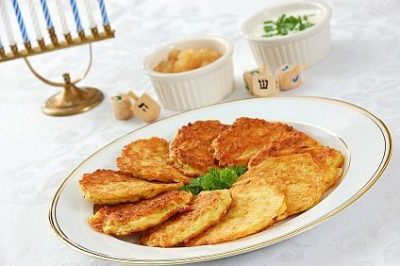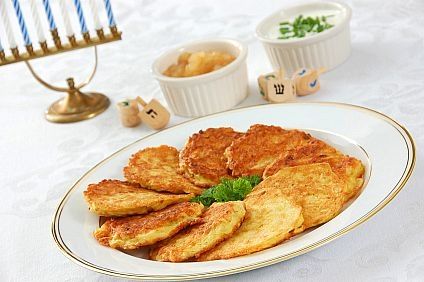
We’ve all heard the story: Chanukah, the festival of lights, celebrates the miraculous event that occurred a couple thousand years back, where the Maccabees and their friends only had enough oil to kindle their menorah for one day, but it somehow lasted for eight days and nights.
We’ve also heard this story: Chanukah is an unimportant, uninteresting holiday with no relevance that received an assimilationist commercializing makeover from people who wanted to give Jewish boys and girls their own version of Christmas.
We say both stories are boring. Both stories miss the point. And Chanukah deserves a second look.
We hear from a lot of folks who like to expose the real story of Chanukah. The not so sexy, gruesome tale of a group of religious extremists (the Maccabees) and their quest to make the entire Jewish world act the way they act. These folks will tell you that Chanukah is actually a total sham, celebrating a war of Jewish superiority. They might also ashamedly tell you just how much the American Jewish community has sold out in its attempts to make Chanukah into a “Jewish Christmas,” with a drastic over-emphasis on gift-receiving and blue and white lights on trees.
Their facts are not wrong. The Maccabees were scary guys. They committed atrocities, including forced circumcisions. They murdered Jews who chose to assimilate into Greek culture. But, like most Jewish holidays, Chanukah can’t be seen in black and white.
For many modern Jews, Chanukah is not primarily about either of the miracles that happened a couple thousand years back. Certainly it may play a role in their understanding of the holiday and provide a necessary context, but the real holiday is captured in eight consecutive nights of community. We hear so frequently how rare family dinners have become, how little time kids spend with their parents, and how people have fewer and fewer moments to take a breath and appreciate the important people in their lives. Those who perform the simple act of lighting a menorah with their family build this time into their lives, and we cannot overstate just how meaningful that is for people.
The other main point people emphasize when describing their connection to Chanukah is similarly separate from both the Maccabean revolt and the miracle of the menorah. This alternative miracle comes in small round servings, and is made by Jewish parents in many corners of the world. It is called the potato latke, and it plays a critical role in the Jewish lives of thousands, if not millions. We all have friends who have no interest in high holiday services, no desire to shake a lulav, and no reason to count the omer. But when the 25th of Kislev rolls around, you better believe they’re in their mother’s kitchen, ravenously destroying a few batches of latkes.
Sure, we could point to this as another symptom of dumbed-down American cultural Judaism. Youngsters nowadays don’t want to do real Jewish, so they just plop themselves down at the table a few times a year when latkes or hamentashen come around. But that doesn’t seem very fair to us. We’ve heard countless friends describe how their mother’s latkes are the best in the world, and they really mean it. The food eaten on Jewish holidays is more than just sustenance, it serves as a real, tangible unifier of families and communities.
Basically, we are not satisfied with the explanation the Chanukah is entirely about either a war or a miracle. Although each of those stories provides the ancient context that connects modern Jews to our ancestors a few thousand years ago, many of Chanukah’s greatest strengths are a few hundred years old or less. Eating potato pancakes is Chanukah observance. Singing Maoz Tzur is Chanukah observance. Publicly displaying chanukkiot, playing dreidel, and even watching viral videos of the Maccabeats — they’re all true Chanukah observances.
The best part of it all is that, precisely because of Chanukah’s complicated and controversial history, it symbolizes one of the most import and profound traditions of Judaism, which is of course spirited debate. Is Chanukah really one more piece of evidence describing why we cannot and will not assimilate? Does Chanukah embody the problems of Jewish education, where we dumb down our holidays so thoroughly that there is nothing left to embrace but jelly doughnuts and potatoes? Should modern Jews be placing their efforts into the “more important” holidays like Yom Kippur or Passover? The jury’s still out. But one thing is for sure, and that is this: Jews will probably be having these conversations more over the course of the next few days than they do the rest of the year. That, as many might say, is good for the Jews.
Chappy Chanukah.

